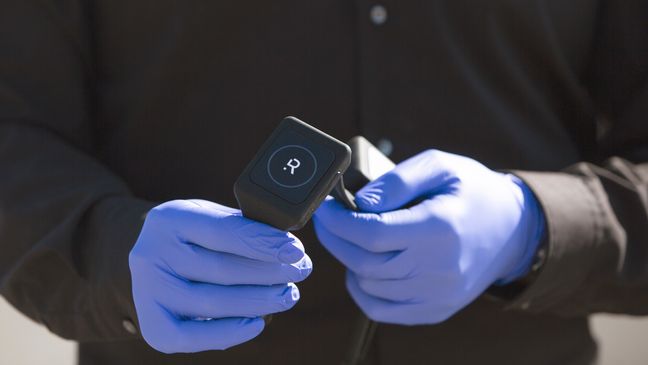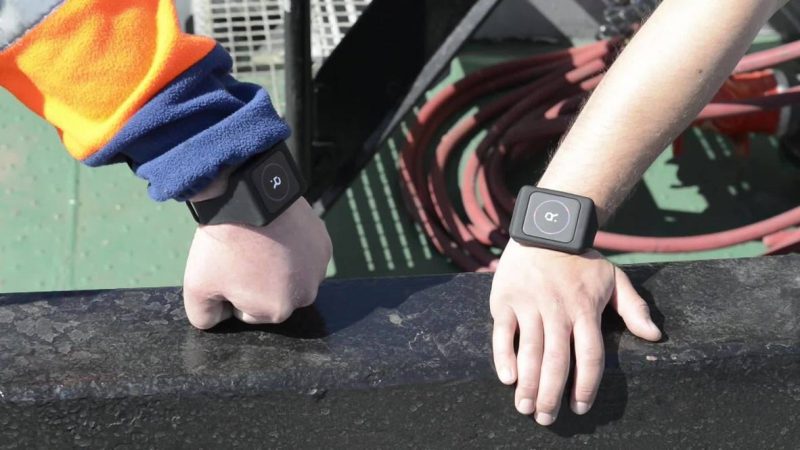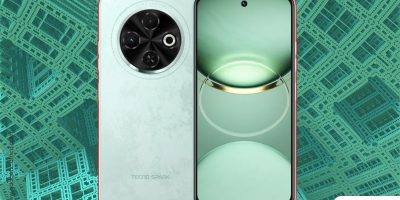A number of countries have been reporting a slow down on the spread of the coronavirus with some of the cities planning to open up and let citizens go back to work. This includes one of Europe’s biggest ports that has been gradually getting back to business. But that of course, does not mean that people are allowed to just ignore all the health safety guidelines altogether.
Antwerp, a coastal town in Belgium that’s also home to over 900 companies has the thousands of port workers employed there wearing bracelets originally used to find tugboat crew members. Interestingly though, the device has now been modified to ensure social distance is maintained as much as possible.
The bracelet is worn like a watch. Coated in plastic, they vibrate whenever two or more are less than three metres close to each other. The vibration strength is set to be similar to that of a smartphone but would be more noticeable on the wrist. The strength, however, increases the closer you get to someone else wearing a similar bracelet.


Image courtesy AP Photo/Virginia Mayo
“You have a helmet and your safety shoes, and you have swimming vests. All these kinds of things. And now we’re adding a wearable on top of that to make sure that people are safe. And if something goes wrong, that it is being detected as soon as possible,” Antwerp Port Chief Technology Officer Erwin Verstaelen said.
Used initially for just physical tracking, the devices do not collect any data. Furthermore, no plans have been announced at the port to use them for tracking employees’ movements or measure their performances even if some companies are already using them for that.
A number of countries have knowingly been developing methods to trace the spread of the virus including apps and other devices. But there have been concerns about privacy arising and just how intrusive they might become once they’re in people’s homes or the workplace.


Image courtesy Ruptly
But even with the privacy assurance that the bracelet has, a number of people have been opposing the idea.
Isabelle Schoemann of the European Trade Union Confederation said the organization wasn’t consulted about the testing. She argues that most people don’t need technology to help them understand how far away they should stand from their co-workers. “We are kind of having a test on a real-life basis, and it is a bit worrying that we are testing that on people, and that we are testing that without having been able to look into what kind of guarantees this technology would bring before the test,” she argues.
On the other hand, others do defend the method as a way to ensure that people get to continue working and secure their jobs especially at a time that the global economy is at a recession forcing companies to lay off thousands if not millions.
“We say that these tools should ideally be used on a voluntary basis. But what choice do you have, if otherwise you don’t have a job and you cannot provide for your family?” argues Nathalie Smuha, law and ethics researcher and assistant lecturer at the University of Leuven.




Comments